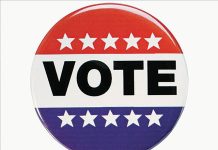Dear Amy: A couple of years ago, an acquaintance of ours hosted a dinner party. I was only acquainted with half the people there. The hostess didn’t make introductions.
One person present was someone I had met a few times. (I’ll call her “Jane.”)
I knew that Jane had a partner, “Joan,” whom I had only met once years before.
At the dinner, Jane was sitting next to a man.
At one point I stared across the table because I was trying to determine if this was Jane’s brother, or if Joan was transitioning to male.
I admit that I feel bad for staring, but I was trying to figure out if we had met.
After they left, the hostess explained that Joan was now “John” and how they hate to have to explain themselves or their pronoun, which is “they.”
I tried to joke: “I didn’t get the memo.” To which the hostess replied, “It wasn’t my memo to send.”
What do you think?
— Befuddled Guest
Dear Befuddled: In the absence of hostess-courtesy, why didn’t you introduce yourself to people? “Hi. I’m Befuddled Guest. But please, you can call me Befuddled. Tell me your name?” If the person answers by saying, “We’ve met before” (I get this a lot), you can say, as I always do, “Oh, I’m so sorry, I’ve forgotten that. Remind me of your name?”
I agree that it is not the hostess’s job to deliver the memo about a guest’s gender transition in advance of the party. It IS the hostess’s job to introduce her guests to one another.
If you know someone’s name, you don’t have to ponder or puzzle over their gender. Granted, “John” is likely a male. “Courtney” might be a man or a woman. But gender identity doesn’t matter, because when you know someone’s name, you can just address them by their name, see them as fellow humans, and take it from there.
Dear Amy: I read several advice columns every day. I am nearly 70, a U.S. Navy veteran and thanks to the GI bill, have a BS in health and human services.
I was a high school teacher, volunteered at a hospice center, and did in-home assessments for a nonprofit.
With ALL of the requests from people asking for advice about, “What do I do when it comes to caring for my loved one?” I have done an informal study over MY years of experience.
Amy, please advise your readers to make sure that they have planned for the future! MY results show that about 90 percent of the folks that I have interviewed do not have any EOL (end of life) plans, i.e., DNR or “Full Code.”
Please advise the family members to talk about how their elders are doing and to review these plans with them, so there is less shock and confusion when the time comes. — Bruce
Dear Bruce: Just yesterday I was talking to a family member about this very thing! I will be working on my EOL plans in the coming weeks and urge readers to do the same. Thank you so much for this important reminder.
Dear Amy: Reflecting on the burdens of caregiving, your recent line: “As a liberated caregiver, I would give anything to be annoyed again,” brought me to tears. My parents drove me crazy during all those years when they were bothering me with their needs.
I miss them so much now that it physically hurts. — A Fan
Dear Fan: One of the most painful aspects of caregiving elderly loved ones is that you know how it is going to end.




